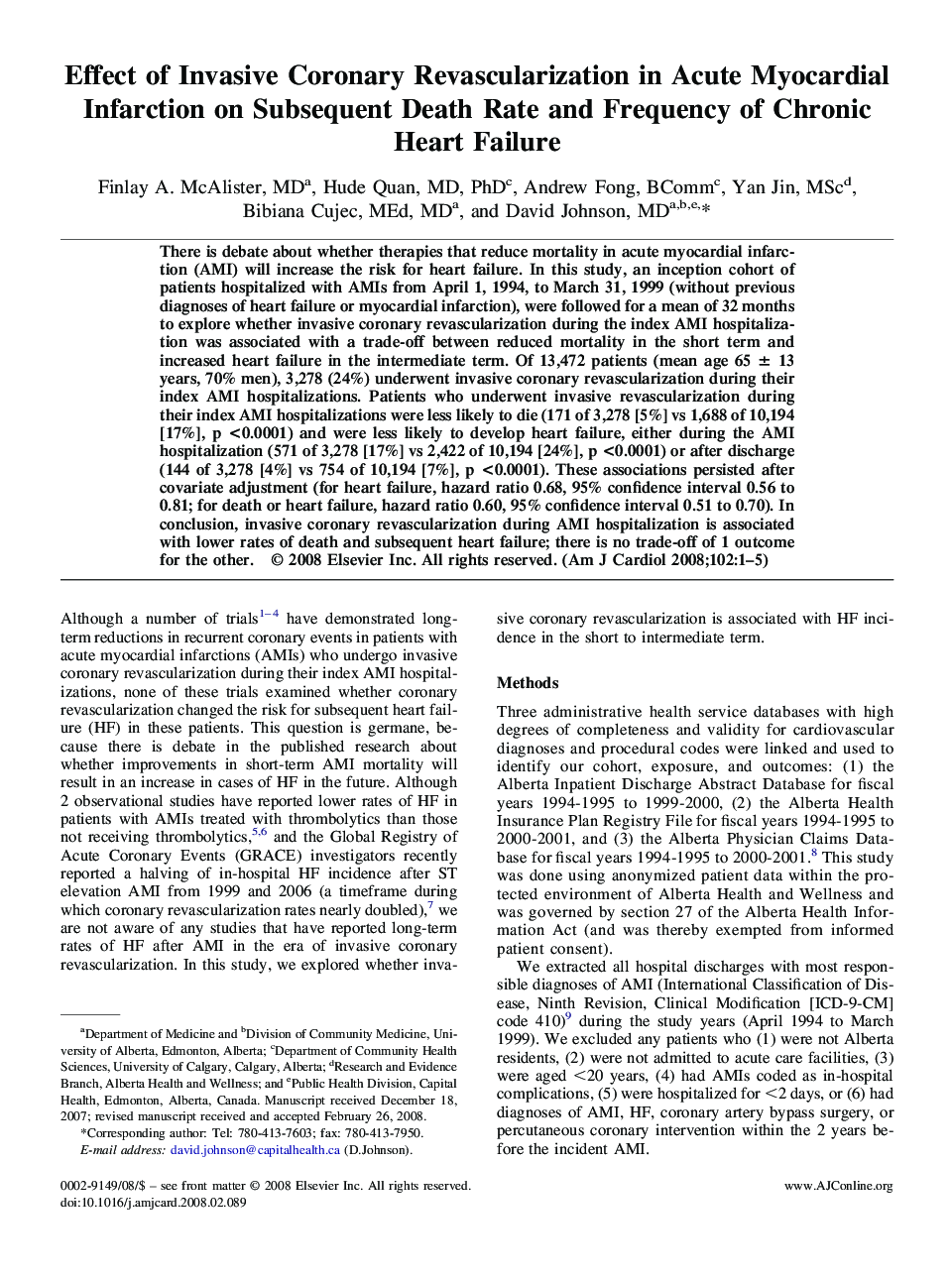| Article ID | Journal | Published Year | Pages | File Type |
|---|---|---|---|---|
| 2859565 | The American Journal of Cardiology | 2008 | 5 Pages |
There is debate about whether therapies that reduce mortality in acute myocardial infarction (AMI) will increase the risk for heart failure. In this study, an inception cohort of patients hospitalized with AMIs from April 1, 1994, to March 31, 1999 (without previous diagnoses of heart failure or myocardial infarction), were followed for a mean of 32 months to explore whether invasive coronary revascularization during the index AMI hospitalization was associated with a trade-off between reduced mortality in the short term and increased heart failure in the intermediate term. Of 13,472 patients (mean age 65 ± 13 years, 70% men), 3,278 (24%) underwent invasive coronary revascularization during their index AMI hospitalizations. Patients who underwent invasive revascularization during their index AMI hospitalizations were less likely to die (171 of 3,278 [5%] vs 1,688 of 10,194 [17%], p <0.0001) and were less likely to develop heart failure, either during the AMI hospitalization (571 of 3,278 [17%] vs 2,422 of 10,194 [24%], p <0.0001) or after discharge (144 of 3,278 [4%] vs 754 of 10,194 [7%], p <0.0001). These associations persisted after covariate adjustment (for heart failure, hazard ratio 0.68, 95% confidence interval 0.56 to 0.81; for death or heart failure, hazard ratio 0.60, 95% confidence interval 0.51 to 0.70). In conclusion, invasive coronary revascularization during AMI hospitalization is associated with lower rates of death and subsequent heart failure; there is no trade-off of 1 outcome for the other.
